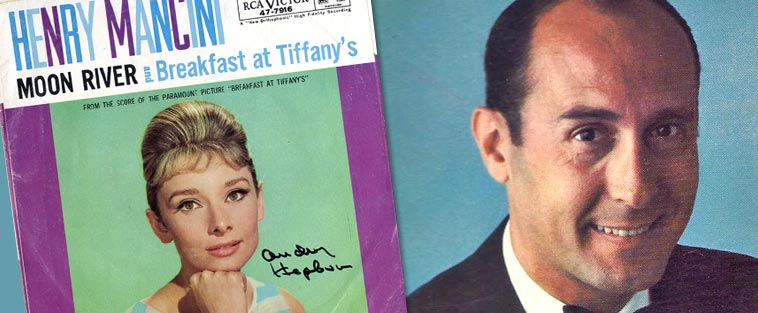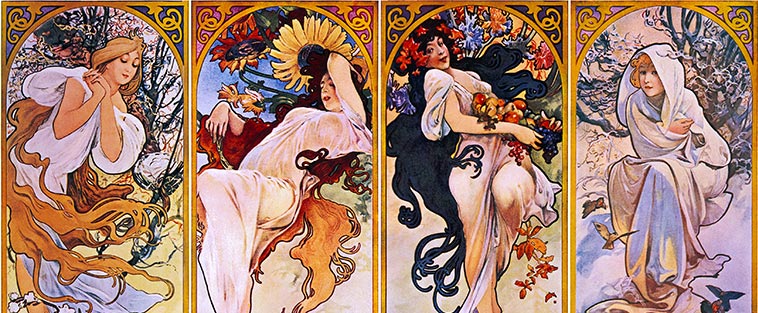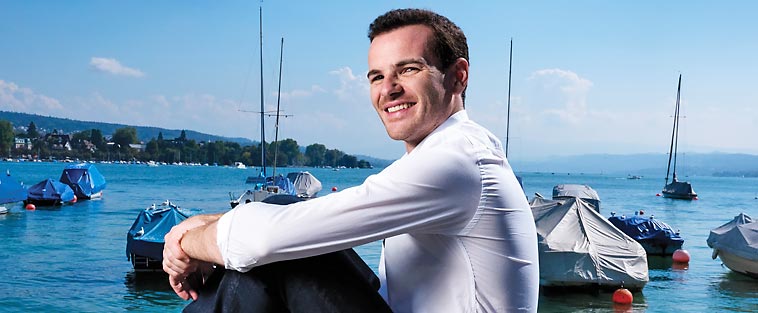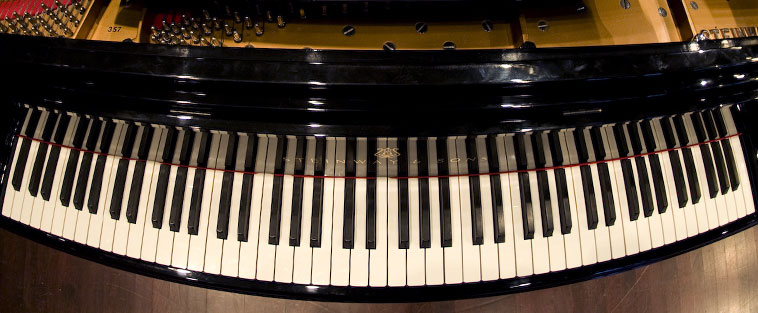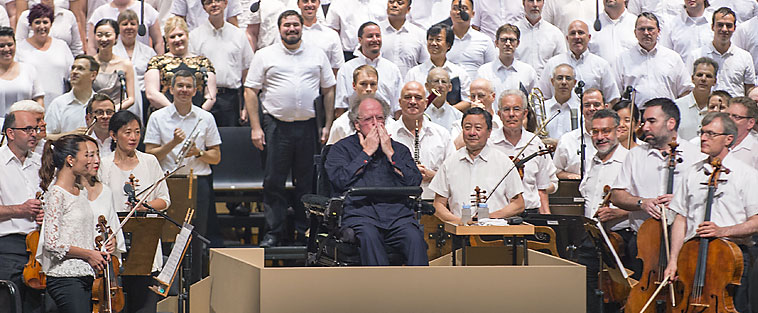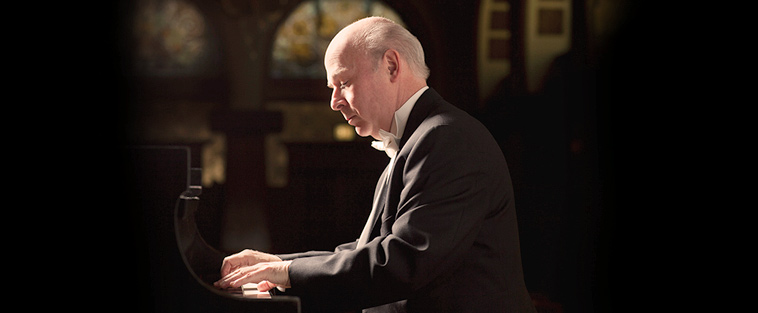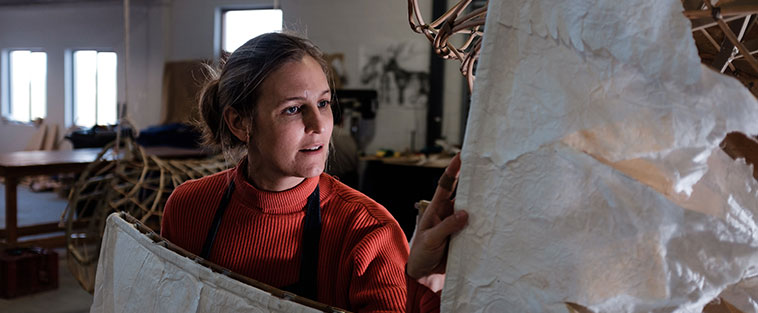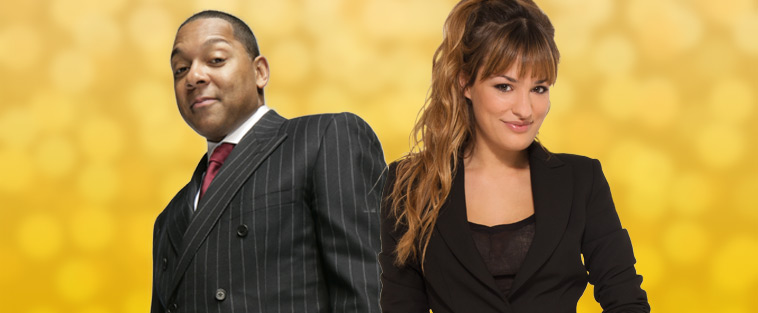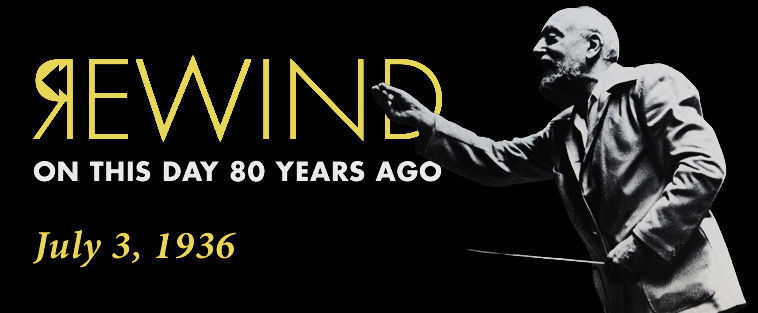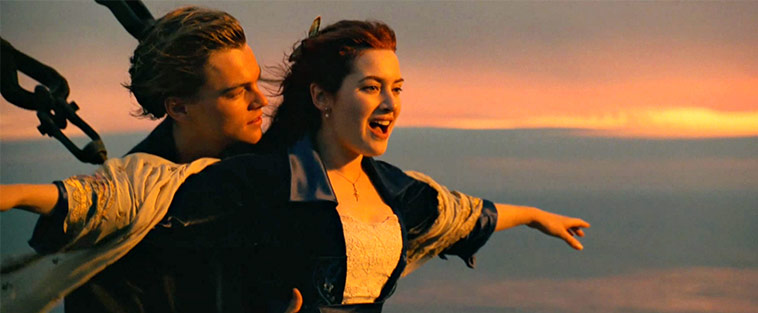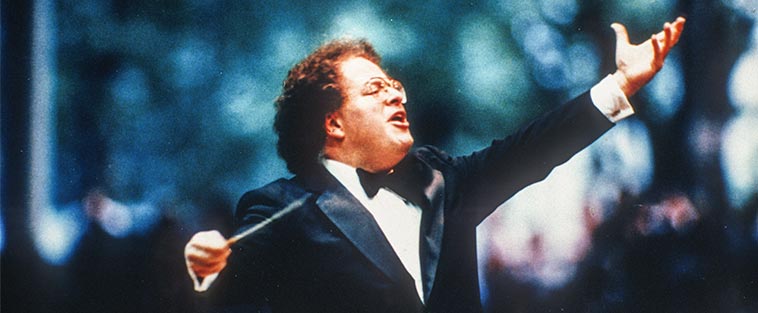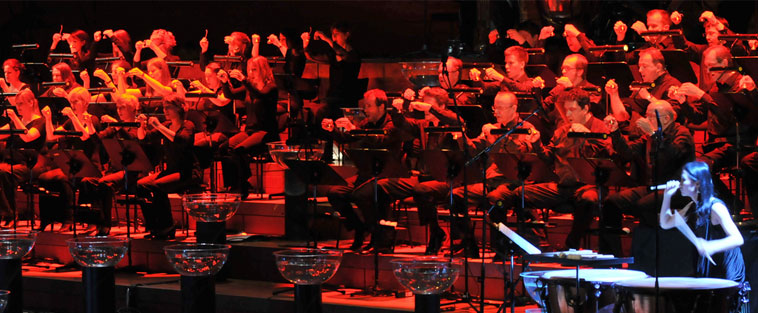I grabbed the ad and flew to the mezzanine level of the house, where technicians and grips were arranging lights and cables. When I approached one and asked, “Do you think I could get Miss Hepburn to autograph this for me?” the grip answered, “Why not ask her yourself? She’s right over there.” I hadn’t even noticed her diminutive figure sitting on the stairs studying her script, and although I didn’t want to cause any disruption in the production, I hurriedly went over and blurted out, “Miss Hepburn, I’m a huge fan of yours and have had this photo in my office for years. Would you please sign it ‘To John’?”
Classical
Bach to Bach: Going for Baroque is an Instrumental Decision
A significant debate in the performance of classical music that originated in the mid-20th century was whether or not to play Baroque-era music on 18th-century instruments or on their modern-day counterparts.
To Every Thing There Is a Season: The Four Seasons have inspired much more than small talk
If a beauty pageant was held for the orchestral works of the Baroque period, odds are the hands-down winner would be Antonio Vivaldi’s The Four Seasons, the set of four violin concertos that the Cleveland-based Baroque orchestra Apollo’s Fire will perform in the Martin Theatre on July 27, replete with the period flavor of their 1725 publishing. Probably the only works that might come close in a popular vote would be Bach’s “Brandenburg” Concertos and Handel’s Water Music, but Vivaldi’s Four Seasons have entered the collective consciousness as few musical works ever have.
Lionel Bringuier: A Nice Guy looks Forward to making the CSO Swell
Lionel Bringuier is only 30 years old, but he has a decade and a half of conducting experience that he will bring to the podium on July 11, when the Chicago Symphony Orchestra begins its 82nd annual residency at the festival. “I grew up in Nice, and my parents loved music,” he says, recalling his formative years as the youngest of four children. “My whole family and I used to go to concerts together. I was always amazed at seeing an entire orchestra onstage.”
Pixel Perfect: Become virtually part of the music in The Virtual Orchestra
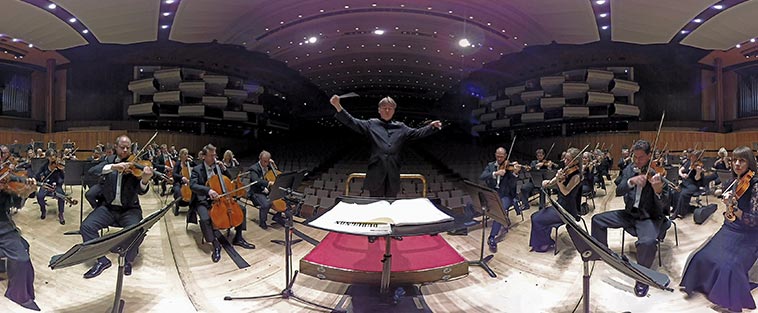
In today’s high-tech world of digital sampling and music streaming, the symphony orchestra is a wonderful if curious anachronism, with many of its instruments and much of its repertoire dating back centuries. Even for regular attendees of symphony concerts, the alchemy of how 80 to 100 or more diverse musicians come together under a conductor to produce one coordinated body of sound remains something of a mystery.
A Keyboard by any Name Sounds as Sweet
Because I was a still very young, I chafed at the appropriation of harpsichord music by pianists—especially since I was studying harpsichord—and it seemed rather obvious to me that one ought to perform music on the instrument for which it was composed. This was the bedrock assumption of the “original instrument” school of “authentic” performance practice, which was just beginning to go mainstream at the time and which today dominates the field of Baroque music performance. What I’ve learned since then, however, is that the whole subject is far more complex than it first seemed to me.
The Management Regrets... but is sometimes witness to history in the making
It happens all the time. A famous, beloved artist falls ill (or, as is sometimes the unpleasant case, gets what may be regarded as a better offer). It even happens at Ravinia. A famous, beloved artist cancels, and management scrambles for an appropriate replacement.
Some cases become memorable, star-making events. Other cases are quickly, even mercifully, forgotten.
A Hero Returns to Literally Thunderous Applause
If you couldn’t be there in person, which is always Plan A, by now you have heard about the night of July 23, 2016 at Ravinia. And if I have my say, you will hear about it again. James Levine returned to Ravinia for the first time since 1993. And the gods seemed to herald his triumph with the thunder and lightning of a torrential storm for the record books. But you didn’t need a Doppler to detect that something historic was going down in Highland Park.
Rewind: July 25, 1936
July 25, 1936: George Gershwin's Sole Ravinia Performance
After the Chicago Symphony Orchestra took residence at Ravinia on July 3, 1936, perhaps the next great highlight of that summer came just a few weeks later. Thousands descended upon the freshly reinaugurated festival in hopes of seeing—but most certainly for the chance to hear—the inimitable pianist, composer, and songwriter George Gershwin.
On the Fly: Jorge Federico Osorio Made Highland Park the Home of His International Career
Jorge Federico Osorio is a classical artist with an international career. Born in Mexico, he could make his home anywhere. Yet after living in New York City for seven years, followed by London for another 11, he chose Highland Park, IL, to be the place where he and his wife, Sylvana, put down their roots and raised their two sons, Dario and Santiago.
Nothing But 'Net: Anthony McGill is Soaring on the (Wood)wind
When clarinetist Anthony McGill visits Ravinia on July 15 to perform the Brahms Clarinet Quintet with the Takács String Quartet, the occasion will be the latest of numerous homecomings the Chicago native has enjoyed since he left the nest for the Interlochen Music Academy and the Curtis Institute of Music many years ago. Originally from the Chatham neighborhood on the city’s South Side, McGill and his unlikely rise to the summit of the clarinet world was fueled by a supreme talent, supportive family, several key local mentors, and an unflagging determination.
Learning to Fly: Janni Younge Makes a New "Firebird" With No Strings Attached
Janni Younge believes passionately in the power of puppetry. Although the centuries-old art form might seem passé in a world where video games and other online diversions are available in seconds, she believes it is even more needed than ever as a tangible antidote to such high-tech escapism. “People are relating to a very ancient instinct,” says the South African puppetmaker, “which is to enjoy the animation of an inanimate object. Particularly in contemporary puppetry, where you see the performers creating life in a thing that is clearly not alive, there is a kind of electricity that happens. We relate to it on a very primal level.”
Fiddling Around: Wynton Marsalis Trumpets Human Connections in His Violin Concerto for Nicola Benedetti
Legendary trumpeter and composer Wynton Marsalis has worn many musical hats across his remarkable career. Thus, the idea that Ravinia would co-commission a concerto from a guy who studied at Juilliard and performed Haydn’s Trumpet Concerto with his hometown New Orleans Philharmonic when he was a mere 14 years old is not so strange.
Rewind: July 3, 1936
July 3, 1936: The CSO Residency Kicks Off
In 1936 Ravinia and the Chicago Symphony Orchestra began an enthusiastic partnership in presenting history’s greatest music in a uniquely lush and comfortable setting, and 80 years later that dedication is as strong as ever, forming the cornerstone of the festival’s classical mission, which also encompasses chamber music, recitals, kids concerts, Reach*Teach*Play, and Ravinia’s Stean’s Music Institute. Even before the relationship became official the CSO was a regular guest, dating back to 1905 as the Theodore Thomas Orchestra. Over the 17 concerts that compose its residency at Ravinia this summer, the CSO will play works that are just as powerful today as they were during that first season—from Beethoven’s Seventh, Brahms’s Second and Fourth, and Dvořák’s “New World” Symphonies to such orchestral delights as Respighi’s Pines of Rome and Strauss’s Don Juan to the playful swirl of Gershwin’s Rhapsody in Blue.
Blindsided by "Titanic"
Sometimes the power of a film can sneak up on you and catch you by surprise. That was the experience I had when I saw James Cameron’s film Titanic—for the third time.
Ahead of His Time
By John Schauer
A long time ago, when I was working as a journalist in California, I came to Ravinia to do a feature interview with James Levine, who was Ravinia’s music director at that time, and in the course of the interview he said something that still haunts me today, as if somehow he sensed what would happen as a result of “social media”—which of course did not yet exist at that time.
Ripple, Affect: Tan Dun’s "Water Passion"
By Thomas May
In 2013 Tan Dun traveled to the Thomaskirche in Leipzig to conduct his Water Passion in the very space where J.S. Bach had introduced the Saint Matthew Passion nearly three centuries ago (most likely in 1727). The gesture underlined the kind of cross-cultural counterpoint that lies at the heart of the Chinese composer’s oratorio. The full title reads Water Passion after Saint Matthew, yet Tan also models his work on his reading of Bach’s monumental precedent; it might even be titled Water Passion after Saint Matthew after Bach—the second “after” being taken simultaneously in its dual senses of “according to” and “post-dating” (for a contemporary world).
For Artist and Audience, the ‘Cycle’ is the Gateway to Another World

The contradictions are stunning.
We are, as we’re constantly reminded, living our lives at supersonic speeds, racing in all directions. We express ourselves in 140-character tweets, fume when a computer file takes three seconds to download, and demand next-day delivery for our online orders (since shopping online is, of course, much faster than heading out to a brick-and-mortar retail store).
Yet we luxuriate in spending hours at a time on a single experience we deem worthwhile. Children, supposedly afflicted by skyrocketing rates of attention deficit disorder, devoured the very long Harry Potter books in marathon sittings. A weekend spent binge-watching multiple seasons of House of Cards or Downton Abbey is many people’s idea of heaven. Restaurants have long waiting lists of customers willing to sit for lengthy, multicourse, insanely expensive meals with menus (no substitutions allowed) set by a superstar chef.
We’re desperately in a hurry. Until we’re not.
Nicola Benedetti, Working in Concert with Wynton Marsalis
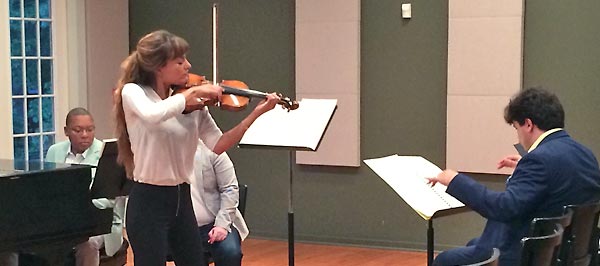 One month from today, Nicola Benedetti will be giving the world premiere of Wynton Marsalis’s Violin Concerto with the London Symphony Orchestra, co-commissioned for her by Ravinia and that ensemble, along with the Los Angeles Philharmonic, National Symphony Orchestra, Leipzig Gewandhaus Orchestra, and Netherlands Radio Philharmonic Orchestra. On the opening night of the Chicago Symphony Orchestra’s 80th-anniversary residency at Ravinia, she will be performing the American premiere of the work with conductor Cristian Măcelaru (who, coincidentally, will be making his Ravinia debut).
One month from today, Nicola Benedetti will be giving the world premiere of Wynton Marsalis’s Violin Concerto with the London Symphony Orchestra, co-commissioned for her by Ravinia and that ensemble, along with the Los Angeles Philharmonic, National Symphony Orchestra, Leipzig Gewandhaus Orchestra, and Netherlands Radio Philharmonic Orchestra. On the opening night of the Chicago Symphony Orchestra’s 80th-anniversary residency at Ravinia, she will be performing the American premiere of the work with conductor Cristian Măcelaru (who, coincidentally, will be making his Ravinia debut).Ravinia and Cuba exchange virtuosos
Nine months before Obama’s historic announcement last winter, Ravinia had already significantly connected with the government of Cuba. In March 2014 an ensemble of young chamber musicians, alumni of Ravinia’s Steans Music Institute (the festival’s summer conservatory), performed in Havana’s Festival de Música de Cámara.
“We got very lucky. We met the right people at the right time,” Plonsker elaborates. “I see Ravinia as a leader. We got there on an official basis before any other group, and we are operating at a very high level of cultural exchange.”

